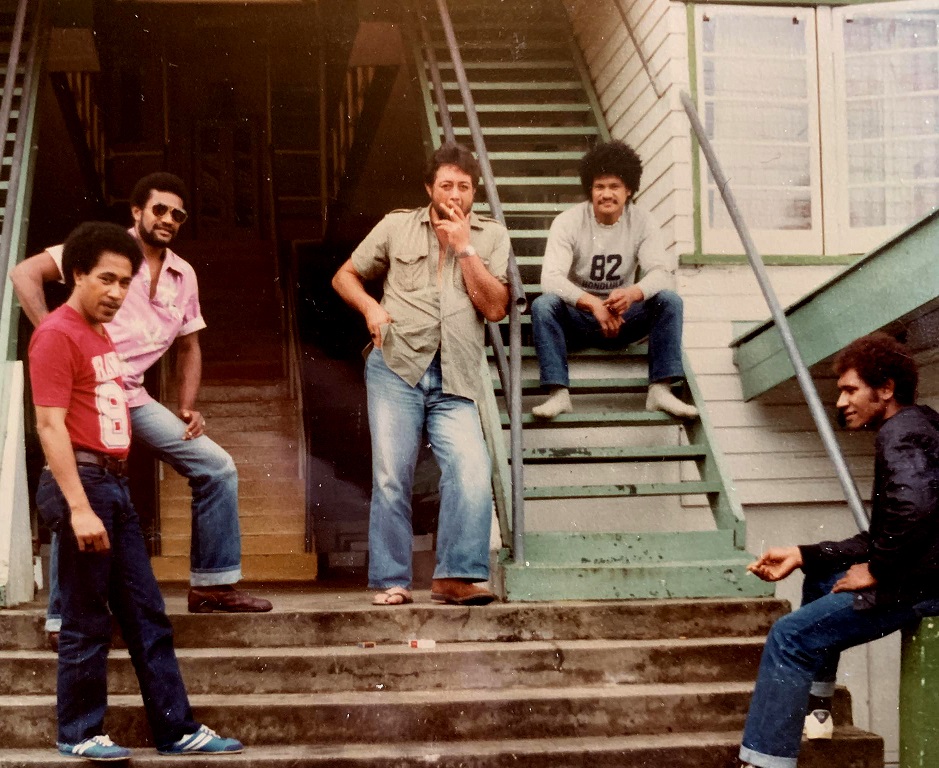Some of the most iconic songs of all time came about because of what artists, bands or what the world was experiencing at a time.
Epic romances, terrible breakups, friendships, families and mental health struggles are just a few of the life experiences that created some of the most famous songs from the 60s, 70s and 80s that we still hear today.
And the New Zealand reggae group – Herbs – did that with ease.
Founded in 1979 and led by singer-guitarist Dilworth Karaka, the band drew inspiration from the everyday challenges faced by indigenous people.
Through this, they came up with soulful and heartfelt songs that set a standard for Pacific reggae.
“It’s lovely to hear that our songs are still played on the radio,” said Karaka.
“Our inspiration came from the people with young families and children who didn’t have a say. It was us here in Aotearoa – Maori being made landless from our land and then how we turned to illustrate the clash with the authorities and government.
“People have their own version of what they think of Maori, and we just found a way of writing some of these songs as stories to tell.
“Everybody has got a story to tell no matter what cultural background we came from, and our stories represent how we see things at the time and hopefully tried to introduce the powers that were needed to make a change to give us some satisfaction in our own land. That has changed now, and we had our little say in a way, I suppose.”
The band made its anti-nuclear stand with songs like French Letter (1982) which became a protest anthem and Nuclear Waste.
“Every time we stepped out of Aotearoa to go and play our music in the Pacific Islands and Australia, they were always considered the best.
“We had gone over to Japan once to represent the Fijians against nuclear testing group.
“They asked us to represent them during a meeting that was held up at Hiroshima and we played at a big concert in memory of Hiroshima.
“We were pleased to do that for Fiji, and it was very successful. Reminiscing brings back some nice thoughts for me that we had with our Fijian friends.”
Karaka said that if the band was given the chance again, they would always write another antinuclear song.
“We shared our thoughts and our songs and that was Tahitians, Cook Islands, Tongans, Samoans, New Caledonia, and Fiji – all the people of the Pasifika.
“That’s how we became accepted by tangata whenua (people of the land) like us, we came here to share with the people of the land.
“You can’t remember those memories, they stay with people who have enjoyed the music. It stays with you forever and you just need a little conversation to open the door again to talk about it.”
Karaka said music never stops, and it never sleeps, and the band felt that way during their tours to Fiji.

“We visited Fiji a lot more than other Pacific Island countries. Of all the countries we’ve been to, Pacific Islands and even Australia with the Aborigines, Fiji was just a place where we felt we were part of.
“Our music was well received, and everyone was so happy when we sang it and it felt like they knew the songs more than me.
“That’s what music does to you, you get attached to it and it brings out lyrics that have messages to it and that message comes from our heart and we always portray that.”
In 1983 Herbs came to play at the Marist Brothers High School Lambert Hall and Karaka shared how the Fijians never disappointed.
“Once we played a couple of Bob Marley songs that made the roof come off and before we knew it the place was buzzing with old and young Fijians. I must say the older generation that came over to see us play were impressed you could see the joy in the way they vibed.
“From there we never looked back, and we became favourite sons of Fijians. “Many times, we came back to play, and we had a local guy who was sort of like our agent in a way who looked after us and he owned a curry restaurant where a lot of musicians from around the world would visit.
“His name was Bharat Jamnadas and his restaurant was called the Java Room. He was a former The Fiji Times photojournalist and had a lots of contacts in the music world – the United States of America, in the islands and in New Zealand.”
Herbs was inducted into the New Zealand Music Hall of Fame in 2012.
“One thing I can say about musicians now is that the musicians are a lot younger now, and the music and their songs are well-versed. “But one thing is for sure – Fijian musicians of both genders are great singers.



